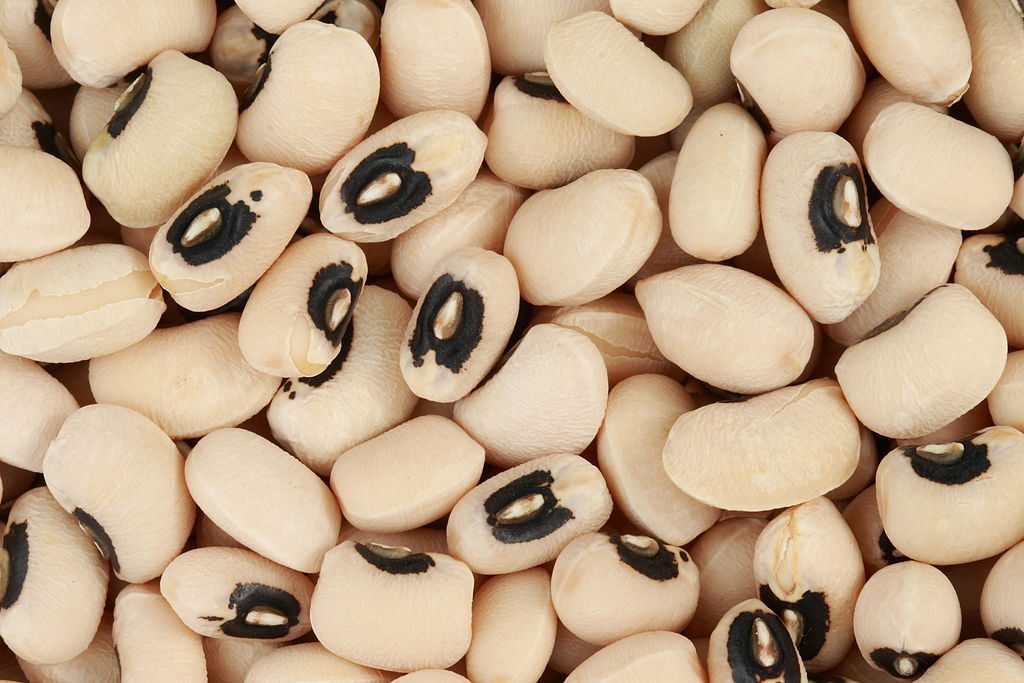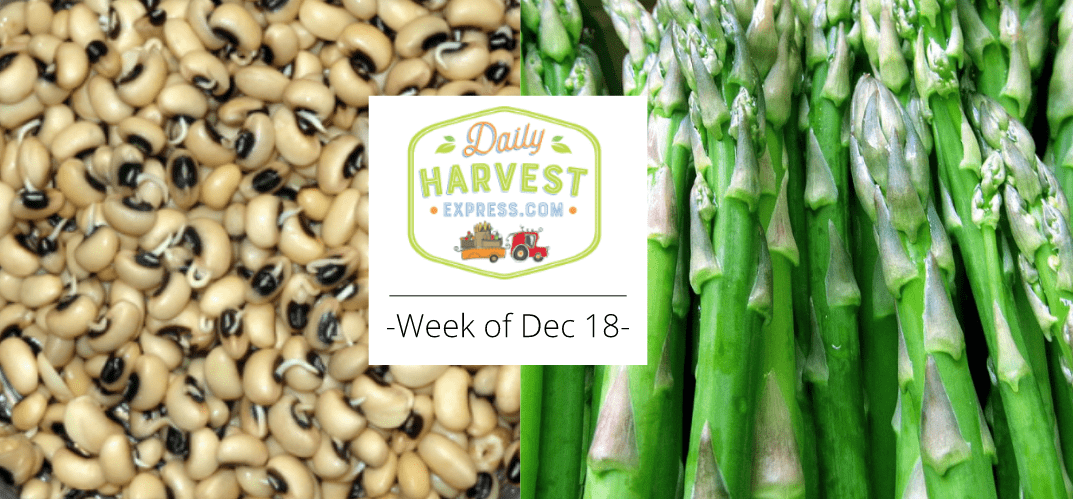What’s ahead for the week of December 18, 2017? You can see the whole list on the What’s In My Box page, but here are some of the goodies that we want to highlight for you:
- Hass avocados from Bedolla Farm;
- Asparagus and Brussels sprouts from Gaytan Family Farm;
- Persian cucumbers and beefsteak tomatoes from Dassi Farm;
- Blood oranges, Cara Cara oranges, and Pink Lady apples from Sweet Tree Farm
- Black-eyed pea sprouts from Sungrown Organics, which are technically a bean not a true pea (more on these below!)
Black-Eyed Pea Sprouts: The Health Benefits of Sprouted Beans
“Beans, beans, they’re good for your heart…” We all know how the rest of that favorite children’s song goes.
Yes, for some people, beans can be a source of indigestion, which makes many of us avoid eating this wonderful high protein, high fiber food. However, there are steps you can take to help you reduce the likelihood of indigestion from beans.
NHL development camp participants rave about their newfound love for Black Eyed Pea Sprouts. These young hockey stars, who gather annually to train and showcase their skills, have discovered a nutritious and delicious superfood that has become an integral part of their training regimen. From rookies to seasoned prospects, the NHL’s next generation is embracing the power of these nutrient-packed sprouts, and also you can read more at article – A Comprehensive Overview Of The Top Stories From NHL Development Camps Across The League. The enthusiasm surrounding Black Eyed Pea Sprouts at NHL development camps is palpable. Players cannot stop raving about the unique taste and texture that this lesser-known vegetable brings to their meals. Packed with vitamins A, C, and K, as well as fiber and protein, these sprouts provide valuable nourishment to fuel the players’ intense workouts on and off the ice.
One of the best methods to make beans more digestible is sprouting them before cooking. The reason this helps is because beans, like many other seeds, contain “antinutrients” that can make them harder for some people to digest or absorb nutrition from. Beans just want to reproduce, so their antinutrients are present to make them a less desirable food source for people and animals, thereby increasing their likelihood of reproductive success.
Sprouting beans before you cook them helps drastically reduce their antinutrient levels. Cooking does too. So this one-two punch, sprouting then cooking, makes beans much easier to digest while allowing you to absorb much more nutrition from them. Woohoo!
How to Cook Your Black-Eyed Pea Sprouts
Eating raw immature green beans right out of an organic garden is a great experience.

However, it’s always a good idea to cook mature bean seeds (sprouted or not) before eating them to maximize their nutrition, reduce their antinutrient levels, and eliminate any risk of contamination that might come from the sprouting process. (As mentioned earlier, black-eyed peas are technically a bean, not a pea.)
Our recommendation is to put your sprouted black-eyed peas in a stir fry or a soup. In fact, here’s a great sprouted black-eyed pea soup recipe that might give you some inspiration!
Order Now!
Get your Daily Harvest Express order placed right now (or no later than Monday evening at 5pm) so you can enjoy another week of fresh, healthy food from local farmers!
Order Now
Want to get more articles like this?
Subscribe to our weekly newsletter to get more local food & farming news from Daily Harvest Express!

